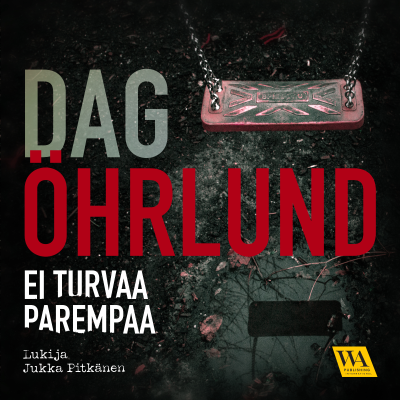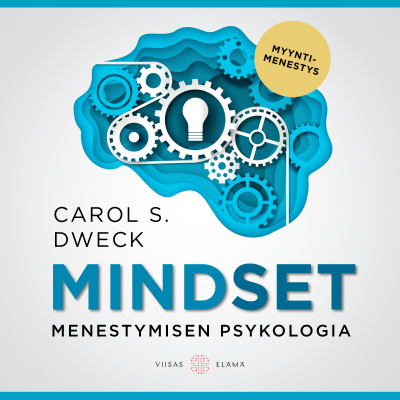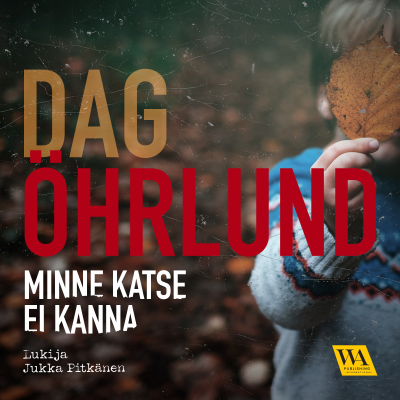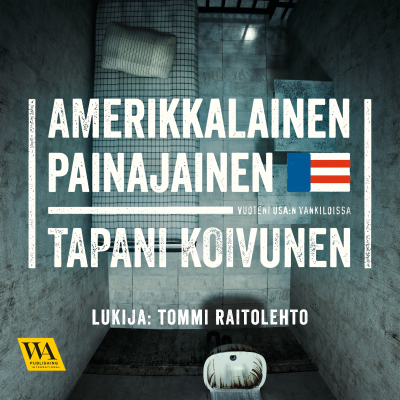
The Clear Evidence
englanti
Historia & uskonnot
Rajoitettu tarjous
1 kuukausi hintaan 1 €
Sitten 7,99 € / kuukausiPeru milloin tahansa.
- Podimon podcastit
- Lataa offline-käyttöön
Lisää The Clear Evidence
The focus of The Clear Evidence initiative is Human. The aim is to spread wisdom and help people in need. Each and every content has been handpicked and has been categorized for easy navigation and reference. Observe, Reflect, Be Wise.
Kaikki jaksot
177 jaksotEid ul Fitr (2025 – 1446H) Prayer Time in Saudi Arabia (English)
The Clear Evidence [https://theclearevidence.org/] Eid Prayer Time in Saudi Arabia The Eid prayer [https://theclearevidence.org/aspects-of-life/festivals-and-celebrations/] in Saudi Arabia is held 10 to 15 minutes after sunrise. Thus it is important to reach the Masjid [https://theclearevidence.org/aspects-of-life/prayer-and-mosque/] before sunrise to have ample time to find an appropriate praying [https://theclearevidence.org/aspects-of-life/prayer-and-mosque/] spot. If the Masjid [https://theclearevidence.org/aspects-of-life/prayer-and-mosque/]is expected to be very crowded then it is better to reach the Masjid [https://theclearevidence.org/aspects-of-life/prayer-and-mosque/]before the Fajr prayer [https://theclearevidence.org/aspects-of-life/prayer-and-mosque/] and then stay there till the Eid prayer [https://theclearevidence.org/aspects-of-life/festivals-and-celebrations/]. Time of Sunrise in the Biggest Cities of Saudi Arabia The time of sunrise in the biggest cities of Saudi Arabia on the day of Eid ul Fitr [https://theclearevidence.org/aspects-of-life/festivals-and-celebrations/] 2025 – 1446H (30th March 2025) is as follows: Eid ul Fitr (2025 - 1446H) Prayer Time in Saudi Arabia (English, Urdu) [https://theclearevidence.org/aspects-of-life/makkah/eid-ul-fitr-2025-1446h-prayer-time-in-saudi-arabia-english-urdu/]
What the Qur’an Says About Peace – Dr. Juan Cole (English)
The Clear Evidence [https://theclearevidence.org/] In this short video, Dr. Juan Cole [https://www.juancole.com/about/toward-authorized-biography], the Richard P. Mitchell Collegiate Professor of History at the University of Michigan [https://lsa.umich.edu/history/people/faculty/jrcole.html], talks about what the Qur’an [https://theclearevidence.org/aspects-of-life/quran/], the scripture revered by the world’s 1.7 billion Muslims, says about peace and why this has never been more important. What the Qur’an [https://theclearevidence.org/aspects-of-life/quran/], the scripture revered by the world’s 1.7 billion Muslims, says about peace has never been more important. Yet very little attention has been paid to this crucial subject. In my book, “Muhammad: Prophet of Peace amid the Clash of Empires [https://www.amazon.com/Muhammad-Prophet-Peace-Clash-Empires/dp/156858783X],” I fill this gap. Let us picture the historical Muhammad SAW, who was born about 570 years after the death of Jesus Christ, whom he saw as his predecessor. As a merchant from the small shrine city of Makkah [https://theclearevidence.org/aspects-of-life/makkah/] in western Arabia, he frequently traveled to cities like Jerusalem and Damascus in the Eastern Roman Empire. His trade would have been disrupted in the year 603 AD, when the Iranian Sasanian Empire invaded the Roman Near East, kicking off a brutal 26-year-long war. It was a time of both Christianity and paganism. Most people in the Roman Empire had embraced Christianity, but at the fringes of civilization, Bedouin and villagers still worshipped the old Arabian gods. Muhammad’s SAW home town, Makkah [https://theclearevidence.org/aspects-of-life/makkah/], was the site of the Kaaba [https://theclearevidence.org/aspects-of-life/makkah/], a shrine to God. Some may have worshipped only this supreme deity, but most simply added him to a pantheon, with pagan goddesses depicted as his daughters. Arab custom respected a major shrine to a deity—like the Kaaba [https://theclearevidence.org/aspects-of-life/makkah/]—as a zone of peace. Muhammad’s SAW clan, the Banu Hashem, were caretakers of the Kaaba [https://theclearevidence.org/aspects-of-life/makkah/] and its pilgrimage and in charge of settling feuds. Peacekeeping was Muhammad’s SAW ancestral vocation. The Qur’an [https://theclearevidence.org/aspects-of-life/quran/] speaks, in chapter 97 [https://quran.com/97], of the descent on Muhammad SAW of the angel on the night of the first revelation, which occurred around the year 610 AD, or about seven years after the war between the Roman Empire and the Sassanids began. That chapter [https://quran.com/97] ends by saying, “and peace it is, until the breaking of the dawn.” 97:5 [https://quran.com/97/5]. The revelation brings with it the peace of worship and spirituality. Muhammad SAW began preaching a strict monotheism to Makkan [https://theclearevidence.org/aspects-of-life/makkah/] pagans, who were outraged. They harassed and boycotted Muhammad’s SAW early Believers RA. In the face of this persecution, the Qur’an [https://theclearevidence.org/aspects-of-life/quran/] advises Muhammad in chapter 73 [https://quran.com/73]: “Be patient with what they say and take your leave of them graciously.” 73:10 [https://quran.com/73/10]. Another chapter (41) [https://quran.com/41] proclaims, “Good and evil are not equal. Repel the latter with the greater good, and behold, your enemy will become a devoted patron.” 41:34 [https://quran.com/41/34]. The chapter (25) [https://quran.com/25] called “The Criterion” speaks of “the servants of the All-Merciful who walk humbly upon the earth—and when the unruly taunt them, they reply, ‘Peace.’” 25:63 [https://quran.com/25/63]. Some sources allege that Muhammad SAW and the Believers RA supported the Roman Empire and that the pagans sided instead with the Iranian Sasanids. The Qur’an [https://theclearevidence.org/aspects-of-life/quran/] tells Muhammad SAW of the year 622 AD, “Recall when the pagans were intriguing against you, to kidnap you, or murder you, or to expel you.” 8:30 [https://quran.com/8/30]. Under pressure, the prophet SAW and his small community emigrated to the nearby city of Madina [https://theclearevidence.org/aspects-of-life/madina/]. Pagan Makkah [https://theclearevidence.org/aspects-of-life/makkah/], however, launched three military campaigns in an attempt to take Madina [https://theclearevidence.org/aspects-of-life/madina/] and crush the new religion of Islam. In each case, the Believers RA and their allies in Madina [https://theclearevidence.org/aspects-of-life/madina/], who included the city’s Jewish community, repelled these attacks. The Qur’an [https://theclearevidence.org/aspects-of-life/quran/] suggests that one goal of these defensive battles was to protect Roman Christian churches to the north from the pagan marauders. Continue Reading: Video: What the Qur’an Says About Peace - Dr. Juan Cole (English) [https://theclearevidence.org/aspects-of-life/quran/video-what-the-quran-says-about-peace-dr-juan-cole-english/]
The Story of an American Air Hostess - Shaikh Khalil-ur-Rahman Sajjad Nomani (English)
The Clear Evidence [https://theclearevidence.org/] Perhaps young girls are also listening. This incident took place in the 1980s. At that time, I was studying in Madinah and had come to India for a week for a specific reason. When it was time to return, I did not get a direct seat. In fact, at that time, there was either no direct flight from Delhi to Jeddah, or if there was, I didn’t get a seat on it. The seat I was assigned required me to first take an American Airlines flight from Delhi to Karachi. From Karachi, I had to switch flights to reach Riyadh, and then from Riyadh, I had to take another flight to Madinah. It was about three in the afternoon when I boarded the plane, burning with a fever and feeling very unwell. My only intention upon taking my seat was to close my eyes and try to rest—I planned to take a tablet, drink some tea, and sleep. But Allah had something else planned. The seat next to mine was occupied by a Sikh gentleman who had been traveling for a long time. He had no one to talk to during his six to seven-hour journey and was eagerly waiting for a new passenger to sit beside him so he could have a conversation. As soon as I arrived, intending to rest, he welcomed me with the intention of talking. I was now stuck. At that time, the Iranian Revolution led by Khomeini was a hot topic. The Sikh gentleman, who was an American national born and raised in the U.S., had limited proficiency in Hindi and preferred to converse in English. The habit of many Indians, especially when traveling, is to pass time by discussing politics. It is quite interesting how, by the time a journey ends, it seems as if all of the country's problems—inflation, electricity shortages, water crises, and gas issues—have been resolved, and everyone parts ways as if the nation’s fate has been decided. This culture is unique to India and not commonly found in other countries. As soon as the Sikh gentleman saw me—a young scholar wearing traditional attire—he started a conversation about the Iranian Revolution. Our elders taught us never to waste time on pointless discussions; rather, it is an art and a science to skillfully steer any conversation towards a meaningful topic. So, while responding to his conversation, I gradually shifted the discussion toward Islam. However, he soon started yawning, showing no interest in religious discussions. Seeing him yawn, I felt relieved, thinking I might finally get a chance to rest. But fate had something else in store. The seat in front of me, near the emergency exit, was occupied by an American air hostess. She had been listening to our conversation. She suddenly spoke up, saying, "It seems like you are discussing Islam. May I join in and ask a few questions?" I agreed and told her she could ask anything, and if I knew the answer, I would respond. She said she had been studying Islam for a year. While she found certain aspects appealing, some things were confusing and difficult to understand. She then asked, "What exactly is the concept of veiling (hijab)? Haven’t you imprisoned half of your population—your women—by imposing this practice?" May Allah guide people to wisdom. Our elders taught us to never respond to a question impulsively. Instead, one should first listen carefully, internally turn to Allah for guidance, and seek divine wisdom before answering. So, as I listened to her question, I silently prayed, asking Allah to guide me toward an answer that would be beneficial. And then, suddenly, an example came to my mind—one I had never thought of before. I told the American air hostess: Continue Reading: Audio: Aik American Air Hostess ka Waqia - Shaikh Khalil-ur-Rahman Sajjad Nomani (Urdu, English) [https://theclearevidence.org/aspects-of-life/invitation-to-islam/audio-aik-american-air-hostess-ka-waqia-shaikh-khalil-ur-rahman-sajjad-nomani-urdu/]
Urdu Narration: Aik American Air Hostess ka Waqia – Shaikh Khalil-ur-Rahman Sajjad Nomani
The Clear Evidence [https://theclearevidence.org/] Perhaps young girls are also listening. This incident took place in the 1980s. At that time, I was studying in Madinah and had come to India for a week for a specific reason. When it was time to return, I did not get a direct seat. In fact, at that time, there was either no direct flight from Delhi to Jeddah, or if there was, I didn’t get a seat on it. The seat I was assigned required me to first take an American Airlines flight from Delhi to Karachi. From Karachi, I had to switch flights to reach Riyadh, and then from Riyadh, I had to take another flight to Madinah. It was about three in the afternoon when I boarded the plane, burning with a fever and feeling very unwell. My only intention upon taking my seat was to close my eyes and try to rest—I planned to take a tablet, drink some tea, and sleep. But Allah had something else planned. The seat next to mine was occupied by a Sikh gentleman who had been traveling for a long time. He had no one to talk to during his six to seven-hour journey and was eagerly waiting for a new passenger to sit beside him so he could have a conversation. As soon as I arrived, intending to rest, he welcomed me with the intention of talking. I was now stuck. At that time, the Iranian Revolution led by Khomeini was a hot topic. The Sikh gentleman, who was an American national born and raised in the U.S., had limited proficiency in Hindi and preferred to converse in English. The habit of many Indians, especially when traveling, is to pass time by discussing politics. It is quite interesting how, by the time a journey ends, it seems as if all of the country's problems—inflation, electricity shortages, water crises, and gas issues—have been resolved, and everyone parts ways as if the nation’s fate has been decided. This culture is unique to India and not commonly found in other countries. As soon as the Sikh gentleman saw me—a young scholar wearing traditional attire—he started a conversation about the Iranian Revolution. Our elders taught us never to waste time on pointless discussions; rather, it is an art and a science to skillfully steer any conversation towards a meaningful topic. So, while responding to his conversation, I gradually shifted the discussion toward Islam. However, he soon started yawning, showing no interest in religious discussions. Seeing him yawn, I felt relieved, thinking I might finally get a chance to rest. But fate had something else in store. The seat in front of me, near the emergency exit, was occupied by an American air hostess. She had been listening to our conversation. She suddenly spoke up, saying, "It seems like you are discussing Islam. May I join in and ask a few questions?" I agreed and told her she could ask anything, and if I knew the answer, I would respond. She said she had been studying Islam for a year. While she found certain aspects appealing, some things were confusing and difficult to understand. She then asked, "What exactly is the concept of veiling (hijab)? Haven’t you imprisoned half of your population—your women—by imposing this practice?" May Allah guide people to wisdom. Our elders taught us to never respond to a question impulsively. Instead, one should first listen carefully, internally turn to Allah for guidance, and seek divine wisdom before answering. So, as I listened to her question, I silently prayed, asking Allah to guide me toward an answer that would be beneficial. And then, suddenly, an example came to my mind—one I had never thought of before. I told the American air hostess: Continue Reading: Audio: Aik American Air Hostess ka Waqia - Shaikh Khalil-ur-Rahman Sajjad Nomani (Urdu) [https://theclearevidence.org/aspects-of-life/invitation-to-islam/audio-aik-american-air-hostess-ka-waqia-shaikh-khalil-ur-rahman-sajjad-nomani-urdu/]
Introduction to Sharia – Andrew F. March (English)
The Clear Evidence [https://theclearevidence.org/] Sharia as a Path to God - Andrew F. March For many of us in America, “Sharia” is a household word, familiar from the media and political debates. But what is Sharia and how much do ordinary Americans really know about it? We may think of it as “Islamic law” but that doesn’t tell us very much if we know little about the Islamic tradition. I’m not a Muslim myself, but I am a scholar of Islamic law, and I often find myself introducing Sharia to college students whose only knowledge of Islam might come from news reports about distant and confusing events. I tell them that for Muslims, Sharia means the “way” or “path” to God. I also explain that it’s broader than just law, and it refers to the very idea of God communicating with humans through revelation. This is why for Muslims, the Sharia includes God’s messages to previous prophets, from Noah to Abraham, Moses, and Jesus. This shouldn’t be a surprise—Muslims see God’s revelation to Muhammad SAW as a continuation, and completion, of the message [https://theclearevidence.org/aspects-of-life/quran/] revealed to the earlier Jewish and Christian prophets. But while the Sharia is not just law, it is law. It contains rules of behavior. But Muslim legal scholars of the past described the Sharia not so much as a codified rulebook, like our tax code, nor as merely a set of higher principles, like the idea of natural law, but as the ongoing search for God’s prescriptions for human action. Like the Mosaic law, the Sharia is the discovery of the rules that will allow believers to obey God. Muslims understand that these rules of Sharia reflect broader purposes and values. Scholars and theologians have traditionally said that the entire Sharia is designed to protect human welfare, which they define through 6 core universal interests: life [https://theclearevidence.org/aspects-of-life/], religion, reason, wealth, family [https://theclearevidence.org/aspects-of-life/family-friends/] and honor. For example, the Sharia prohibits the consumption of alcohol. But scholars don’t just say that this is because God has forbidden it – but also because it is God’s will that humans protect and preserve their reason or intellect, which is necessary for making correct moral [https://theclearevidence.org/aspects-of-life/manners-and-etiquette/] decisions. The Sharia also prohibits sexual relations outside of marriage [https://theclearevidence.org/aspects-of-life/family-friends/]. This is not just because of divine decree, but because it preserves family [https://theclearevidence.org/aspects-of-life/family-friends/] bonds. At the same time, the Sharia prohibits false accusations of sexual immorality. This protects human dignity and honor, which are necessary for living a good life. So the Sharia should first be understood by its goals and values before its rules. What then are those rules? And if they are not codified, how are they known? Muslim jurists discovered these rules through 4 primary sources: the Quran [https://theclearevidence.org/aspects-of-life/quran/], the words and actions of the Prophet Muhammad (SAW), the universal agreement about a matter by the Muslim community (or its scholars), and the careful use of analogy. Law usually refers to the public sphere, but most of the Sharia’s rulings are about private spiritual practice, such as prayer [https://theclearevidence.org/aspects-of-life/prayer-and-mosque/], fasting [https://theclearevidence.org/aspects-of-life/islamic-months/ramadan/], charity [https://theclearevidence.org/aspects-of-life/charity/], and so on. And while rulings on social relations from marriage, divorce [https://theclearevidence.org/aspects-of-life/family-friends/], sales, contracts, and inheritance [https://theclearevidence.org/aspects-of-life/family-friends/] remain a living part of the Sharia, their implementation in modern societies varies from country to country. Sometimes it is based purely on personal conviction—as in the case of American Muslims voluntarily giving to charity [https://theclearevidence.org/aspects-of-life/charity/] or following Islamic finance laws. Importantly, very few of the areas of behavior [https://theclearevidence.org/aspects-of-life/manners-and-etiquette/] and social relations [https://theclearevidence.org/aspects-of-life/family-friends/] the Sharia governs have only a single rule on which all jurists agree. Scholars always accepted and recognized reasonable disagreement, because interpretation could rarely provide complete certainty about God’s intentions. Continue Reading: Video: Introduction to Sharia - Andrew F. March (English) [https://theclearevidence.org/aspects-of-life/invitation-to-islam/video-introduction-to-sharia-andrew-f-march-english/]
Valitse tilauksesi
Rajoitettu tarjous
Premium
Podimon podcastit
Lataa offline-käyttöön
Peru milloin tahansa
1 kuukausi hintaan 1 €
Sitten 7,99 € / kuukausi
Premium
20 tuntia äänikirjoja
Podimon podcastit
Lataa offline-käyttöön
Peru milloin tahansa
30 vrk ilmainen kokeilu
Sitten 9,99 € / month
Premium
100 tuntia äänikirjoja
Podimon podcastit
Lataa offline-käyttöön
Peru milloin tahansa
30 vrk ilmainen kokeilu
Sitten 19,99 € / month
1 kuukausi hintaan 1 €. Sitten 7,99 € / kuukausi. Peru milloin tahansa.

































